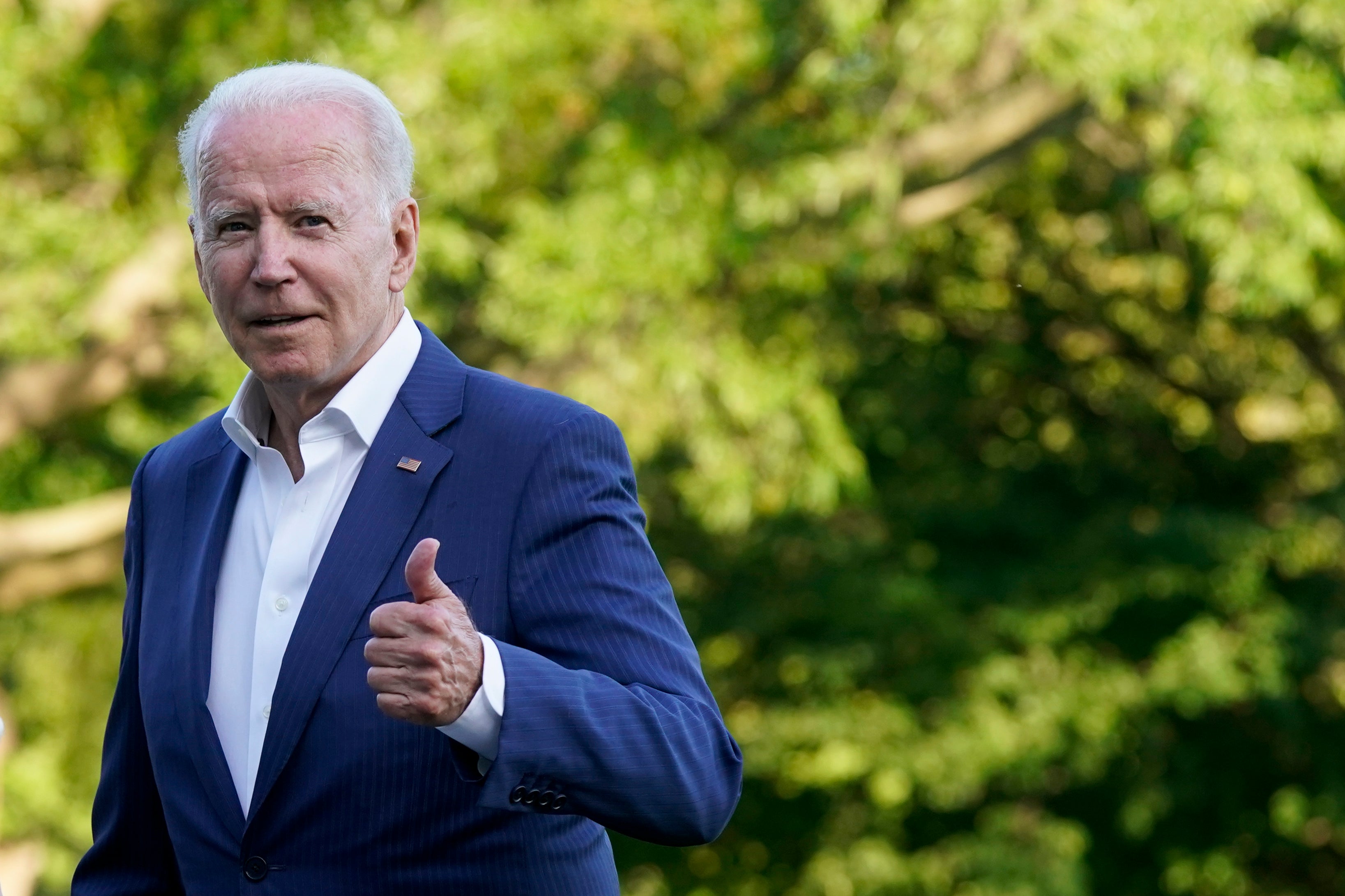President Biden orders US airstrikes against Iran-backed militias in Iraq and Syria
The Pentagon described the airstrikes as ‘defensive’. The government in Baghdad condemned the attacks as ‘unacceptable’.

Your support helps us to tell the story
From reproductive rights to climate change to Big Tech, The Independent is on the ground when the story is developing. Whether it's investigating the financials of Elon Musk's pro-Trump PAC or producing our latest documentary, 'The A Word', which shines a light on the American women fighting for reproductive rights, we know how important it is to parse out the facts from the messaging.
At such a critical moment in US history, we need reporters on the ground. Your donation allows us to keep sending journalists to speak to both sides of the story.
The Independent is trusted by Americans across the entire political spectrum. And unlike many other quality news outlets, we choose not to lock Americans out of our reporting and analysis with paywalls. We believe quality journalism should be available to everyone, paid for by those who can afford it.
Your support makes all the difference.The United States early Monday launched a wave of airstrikes on several facilities allegedly used by Iranian-affiliated militias in Iraq and Syria, a response to a recent drone attack on a base housing American military personnel.
The bombings, which reportedly killed at least four members of the militias, prompted angry responses by both the armed groups and the Iraqi government, which condemned the air strikes and vowed to investigate
"The attack represents a blatant and unacceptable violation of Iraqi sovereignty and national security following all international covenants,” Yahya Rasool, spokesman for the Iraqi armed forces, said in a statement.
“Iraq renews its refusal to be an arena for settling accounts, and adheres to its right to sovereignty over its lands, and to prevent it from being used as an arena for reactions and attacks."
Syrian state television broadcast images showing smoke rising from low lying buildings in what appeared to be an industrial district. A statement released by the Pentagon described a series of “defensive precision airstrikes” targeting bases and weapons storage facilities at three locations along the Syrian-Iraqi border used by Iran-backed militias, including Katayeb Hezbollah and Katayeb Sayyid al-Shuhada.
“The targets were selected because these facilities are utilised by Iran-backed militias that are engaged in unmanned aerial vehicle attacks against US personnel and facilities in Iraq,” Pentagon spokesman John Kirby said in a statement.
The airstrikes, ordered by President Joe Biden, came after four explosives-laden drones struck near the US consulate in the northern Iraqi city of Erbil shortly after midnight on Saturday. No American or Iraqi personnel were killed or injured.
The Syrian Observatory for Human Rights, a UK-based monitoring group, claimed that at least five Iraqis were killed in Monday’s airstrikes, but there was no confirmation of any casualties from any of the armed groups. Syrian state media said four members of the armed groups were killed and three injured in the attacks.
The US has become increasingly concerned about the use of sophisticated drones by powerful and politically connected Iraqi militias, and there had been numerous attacks targeting American-associated facilities in recent weeks.
Iraq’s militias, first formed following the 2003 US-led overthrow of Saddam Hussein’s longtime regime, have since 2014 grown into a major political and military power, with allies positioned in parliament and the ministries.
The airstrikes come at a sensitive time in a series of ongoing talks in Vienna between the US, Iran and other world powers over the restoration of a 2015 nuclear technology agreement meant to prevent the Islamic Republic from attaining atomic weaponry.
They are the first US attacks on Iran-affiliated militias since February and come as a newly elected hardline president, Ebrahim Raisi, prepares to take power on 5 August.
Mr Kirby, in his statement, described the attacks as proportionate, measured and within the parameters of self-defence as delineated by international law. “The United States took necessary, appropriate, and deliberate action designed to limit the risk of escalation—but also to send a clear and unambiguous deterrent message,” he said.
Iran’s foreign ministry condemned the attacks, describing as part and parcel of American missteps in the Middle East.
“America continues to follow a wrong path in the region,” Iranian foreign ministry spokesman Saeed Khatibzadeh told reporters on Monday, according to the official Islamic Republic News Agency. “Our advice for America is to refrain from taking emotional steps, creating crises and tensions, and multiplying problems for people in the region.”
Several thousand US forces remain in Iraq as part of efforts to advise and assist local forces in combating the possible resurgence of Isis, remnants of which remain in the country’s deserts and mountains following its defeat at the hands of an international coalition in 2017.
Iran’s role in Iraq has come under increasing criticism both from Iraqis who have staged protests against the influence of Iranian-backed militias and other nations. Saudi Arabia and the United Arab Emirates have pressured the Biden administration to include talks on Iran’s support for armed non-state actors in Iraq, Syria, Lebanon, and Yemen as part of any negotiations.
The UK ambassador to Iraq, Stephen Hickey, on Sunday urged Iran to throw its weight behind the governments in Baghdad and the semi-autonomous authority overseeing Iraqi Kurdistan instead of attempting to wield influence through clandestine armed groups.
“We’ve heard from the Iranian government that they want to see a strong and stable Iraq,” he said in an interview with the Kurdish news outlet Rudaw. “Now, if that’s the case, I sincerely hope we will not see further support to these groups outside the control of the state.”
Join our commenting forum
Join thought-provoking conversations, follow other Independent readers and see their replies
Comments